All Formats & Editions

The Conquest of Bread
This edition has a large, easy-to-read font. Peter Kropotkin was born a Russian prince whose father owned 1,200 serfs. As he aged, he came to hate the inequality in his society, and renounced his royal title. He was imprisoned and spent decades in exile for his views, which he...
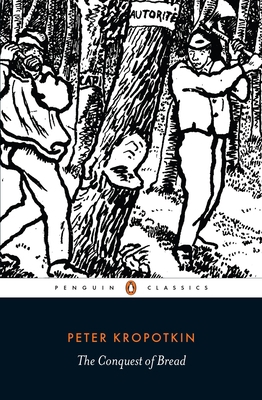
The Conquest of Bread
"Well-being for all is not a dream." In this brilliantly enjoyable rallying-cry of a book, Kropotkin lays out the heart of his anarchist beliefs--beliefs that surged around the world in the late 19th and early 20th centuries and that have a renewed relevance and...
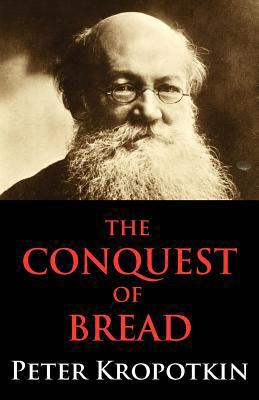
The Conquest of Bread
In The Conquest of Bread, Peter Kropotkin describes how the revolution can achieve a free, egalitarian, and self-sufficient anarcho-communist society. In issuing his argument for this society, Kropotkin critiques the various economic systems, from pure capitalism to state-run...

The Conquest of Bread

Conquest of Bread: With an Excerpt from Comrade...
The Conquest of Bread is an 1892 work by Peter Kropotkin. Kropotkin outlines what he believes are the main problems with both feudalism and capitalism, and explains why they require and encourage poverty and scarcity through the description of a future society based on liberty,...
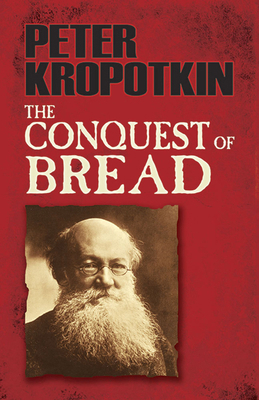
The Conquest of Bread
Born a Russian prince, Peter Kropotkin (1842-1921) rejected his title and wealth to spend his life in pursuit of social justice and equality. His last major work, The Conquest of Bread, surveys economic methods for the satisfaction of human needs. The 1892 treatise also...
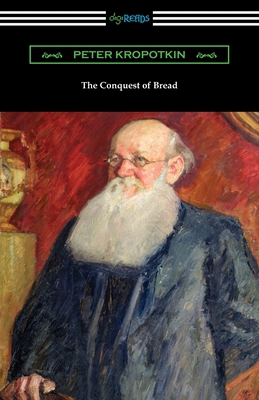
The Conquest of Bread

The Conquest of Bread by Peter Kropotkin

The Conquest of Bread
Peter Kropotkin was born a Russian prince whose father owned 1,200 serfs. As he aged, he came to hate the inequality in his society, and renounced his royal title. He was imprisoned and spent decades in exile for his views, which he has laid out in this book. He points out...

The Conquest of Bread: A Critique of Capitalism...
![La Conquista Del Pan (Spanish Edition) [Spanish] 1539916065 Book Cover](https://i.thriftbooks.com/api/imagehandler/l/91D94BE5509A224972D695CFA13D8C034A809CFB.jpeg)
La Conquista Del Pan (Spanish Edition) [Spanish]
La conquista del pan es, posiblemente, el t tulo m s conocido y celebrado de los publicados por Piotr Kropotkin, el "Pr ncipe anarquista", traducido y divulgado por todo el mundo desde su primera aparici n, en Par s, en 1892. En el se sientan las bases del comunismo libertario...
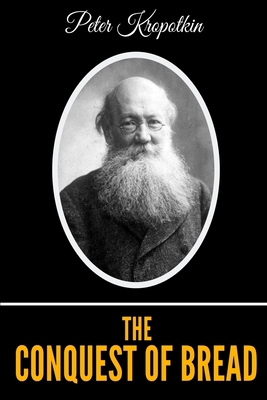
The Conquest Of Bread
Prince Peter Alexeivitch Kropotkin, revolutionary and scientist, was descended from the old Russian nobility, but decided, at the age of thirty, to throw in his lot with the social rebels not only of his own country, but of the entire world. He became the intellectual leader...

The Conquest of Bread
The Conquest of Bread is a revolutionary idyl, a beautiful outline sketch of a future society based on liberty, equality and fraternity. It is, in Kropotkin's own words, "a study of the needs of humanity, and of the economic means to satisfy them."
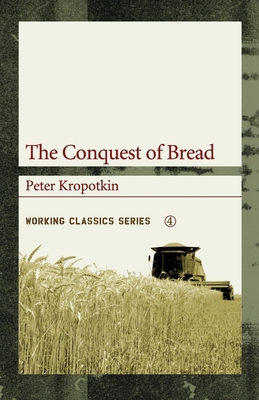
The Conquest of Bread
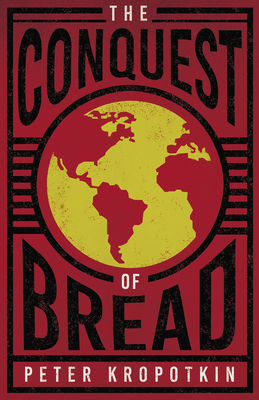
The Conquest of Bread: With an Excerpt from Com...
"The Conquest of Bread" is an 1892 work by Peter Kropotkin. Kropotkin outlines what he believes are the main problems with both feudalism and capitalism, and explains why they require and encourage poverty and scarcity through the description of a future society based on liberty,...
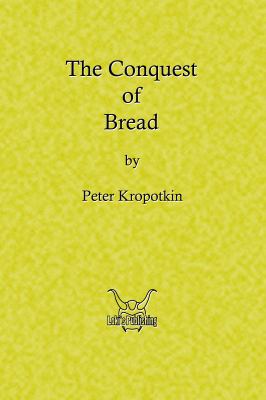
The Conquest of Bread

The Conquest of Bread
In this book, Kropotkin points out what he considers to be the defects of the economic systems of feudalism and capitalism and why he believes they thrive on and maintain poverty and scarcity. He goes on to propose a more decentralized economic system based on mutual aid and...
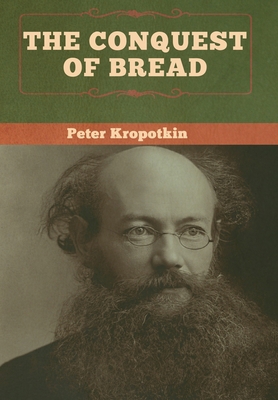
The Conquest of Bread
The Conquest of Bread is an 1892 book by the Russian anarcho-communist Peter Kropotkin. Originally written in French, it first appeared as a series of articles in the anarchist journal Le R volt . It was first published in Paris with a preface by lis e Reclus, who also suggested...
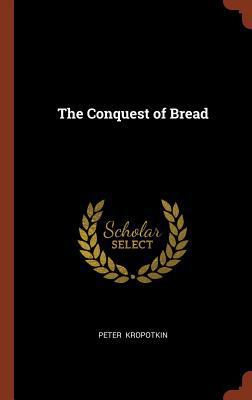
The Conquest of Bread
![La Conquista del Pan (Spanish Edition) [Spanish] 1493561537 Book Cover](https://m.media-amazon.com/images/I/31syVuOWscL._SL500_.jpg)
La Conquista del Pan (Spanish Edition) [Spanish]
Este libro es el m?s importante de la historia del pensamiento anarquista.
![La Conquete Du Pain [French] 0988668564 Book Cover](https://i.thriftbooks.com/api/imagehandler/l/2CE3BFD2C2CAD252337A56E7E86249F78A7E6A03.jpeg)
La Conquete Du Pain [French]
Dans La Conqu te du Pain, Pierre Kropotkine d crit comment la r volution peut parvenir une soci t anarcho-communiste qui est libre, galitaire et autonome. En publiant son argument en faveur de cette soci t , Kropotkine critiques des diff rents syst mes conomiques, du capitalisme...
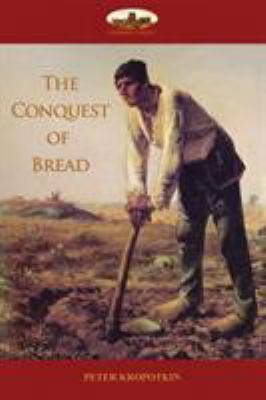
The Conquest of Bread
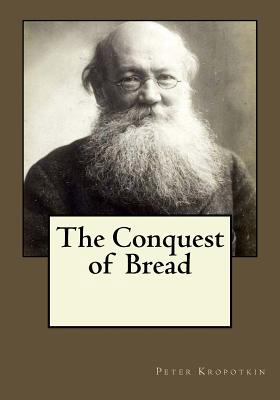
The Conquest of Bread
The Conquest of Bread is a book by the anarchist communist Peter Kropotkin. Originally written in French, it first appeared as a series of articles in the anarchist journals Le R volt and La R volte (both edited by Kropotkin). It was first published as a book in Paris in 1892...
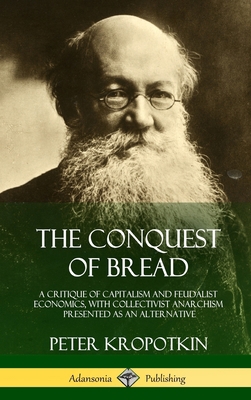
The Conquest of Bread: A Critique of Capitalism...
The Conquest of Bread is Peter Kropotkin's famous critique of capitalism, wherein he excoriates that system in favor of anarcho-communism; a form of government he believed could ensure fairness for all. Kropotkin had an alternate vision of the way society, work, and population...
![La Conqu?te du pain [French] B08DTXCX8S Book Cover](https://i.thriftbooks.com/api/imagehandler/l/BE4BFD79B54739E8E6D8DD23B9378355E13ABDE8.jpeg)



